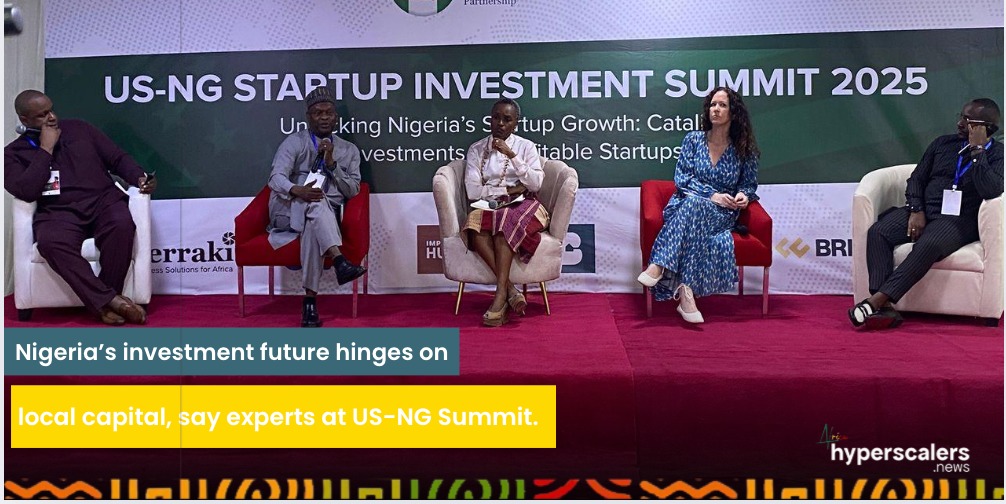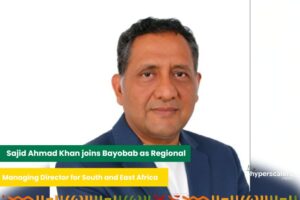American Business Council convenes public-private leaders to jumpstart private equity and pension-backed tech funding in Nigeria
At the US-NG Startup Investment Summit 2025, hosted by the American Business Council, investors, policymakers, and tech founders came together to address a long-standing paradox: Nigeria is one of Africa’s most promising startup markets, yet local capital remains largely on the sidelines.
In powerful keynotes and a spirited panel titled “Unlocking Nigeria’s Startup Growth: Catalysing Investments in Profitable Startups,” speakers called for urgent collaboration between financiers, intermediaries, and regulators to build a more functional investment pipeline.
In her opening keynote, Margaret Olele, CEO, American Business Council Nigeria, announced the creation of a new Startup/Associate Membership Category, a signal that the Council intends to deepen engagement with Nigeria’s fast-growing tech sector.
“Capital will not move until the demand, supply, policy, and intermediary ecosystems all work in tandem,” said Oguche Agudah, CEO of the Pension Fund Operators Association of Nigeria, in his keynote.
JoEllen Gorg, Acting U.S. Consular General, highlighted Nigeria’s potential and unveiled early plans for a five-year Memorandum of Understanding (MoU) aimed at boosting bilateral trade and tech investment.
“Nigeria remains a strategic market for the U.S.,” Gorg stated. “We’re forming dedicated working groups to unlock investment, scale market access, and share best practices.”
The summit also saw Julie LeBlanc, Commercial Counsellor for the U.S. Government in Nigeria, highlight a five-year Memorandum of Understanding (MoU) aimed at boosting bilateral trade and tech investment.
Speakers identified four critical levers that must work in concert to unlock capital at scale: the demand for finance, the supply of finance, enabling policies, and a robust layer of intermediaries and market builders. These interconnected pieces, they argued, are essential to attracting the volume of capital needed to grow Nigeria’s startup economy. “The US FAANG companies (Facebook, Apple, Amazon, Netflix, and Google) scaled because they had access to early-stage VC and PE capital,” one panelist noted. “Africa must build its own version of that investment infrastructure.”
But while foreign support is welcome, the conversation quickly turned to the role of domestic capital and the shift needed in how Nigerian wealth views tech investments.
“Our ugliest trumpets are louder than our most useful ones,” said Hertz Fauzar of Group Africa, emphasizing the need to document and learn from startup failures. “We don’t market our success stories enough, and we don’t post-mortem our failures.”

Fauzar called for a psychological and policy-level “decoupling” – urging Nigerian capital owners to shift from seeing tech investment as charity or PR, and instead recognize it as a legitimate wealth-building vehicle, akin to energy or real estate. “Local capital should not only follow foreign capital it must learn to lead,” he said.
Kyari Abba-Bukar, Director at Inlaks and a veteran investor, noted that local attitudes have already started to shift. “It used to be hard to get $10,000 out of a high-net-worth individual. But that is changing.”
Referencing his own angel syndicate’s early bets on Paystack and Moniepoint, Abba-Bukar argued for more structured participation. “Pension funds must play a role. Can’t we segment funds with 30-year maturity and allocate even 10% to Private Equity or tech? It’s time pensions helped build Africa’s future.”
Omobola Johnson, Partner at TLcom Capital and Nigeria’s former ICT Minister, emphasized that Nigeria’s 200 million–strong market remains a magnet for capital, but exits remain limited. “They’re small but real. There are acquisitions in fintech, and there will be more. We must focus on derisked companies with solid governance and late-stage traction; that’s where institutional investors like pension funds can safely play.”
The verdict from the summit was clear: Nigeria has the startups. It has the talent. And increasingly, it has the proof. What it needs now is for its own capital to catch up – not just in money, but in mindset.




